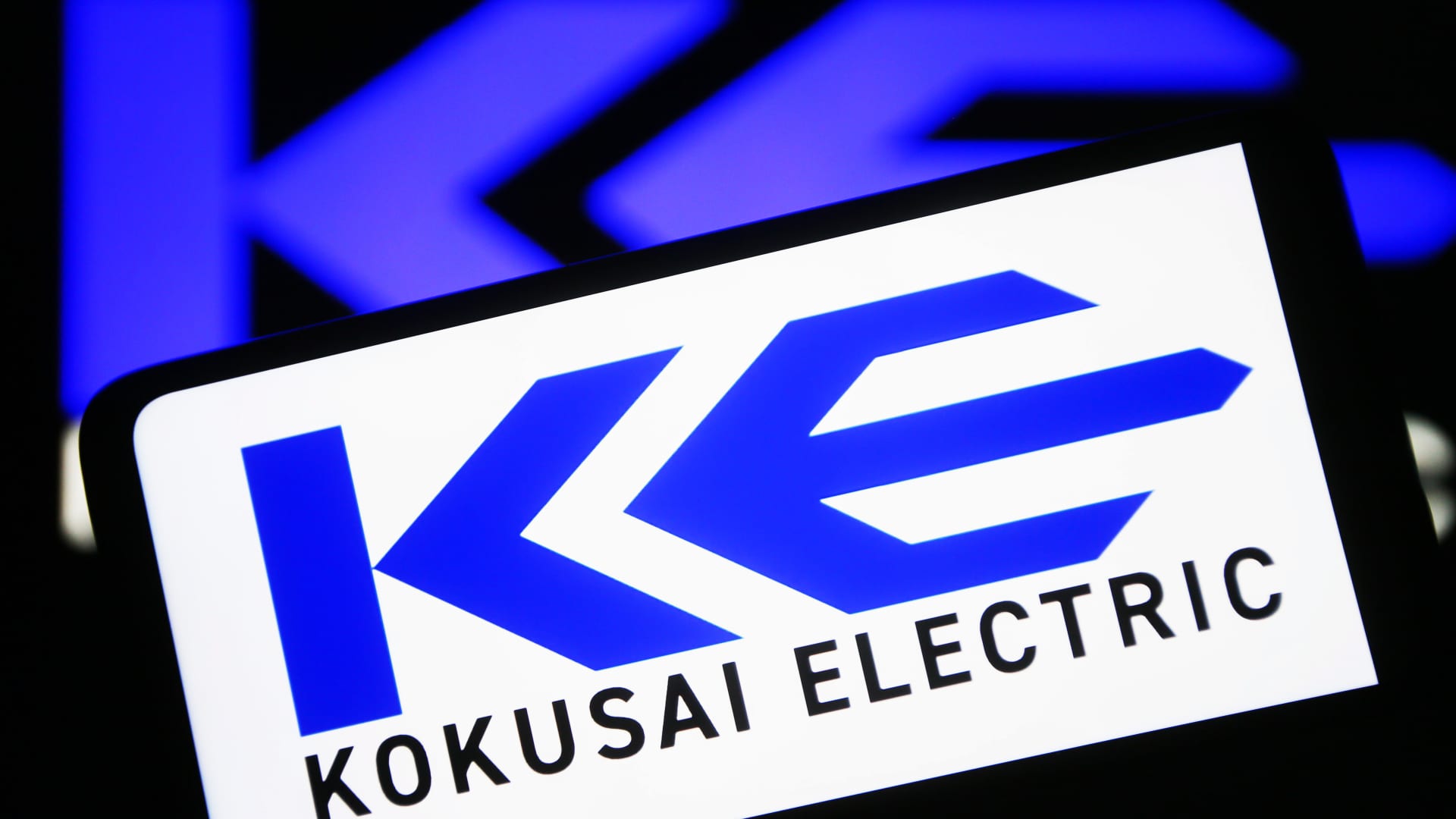In this photo illustration, Kokusai Electric logo is seen on a smartphone screen. (Photo Illustration by Pavlo Gonchar/SOPA Images/LightRocket via Getty Images)
Sopa Images | Lightrocket | Getty Images
Shares of Japanese semiconductor equipment maker Kokusai Electric saw a strong debut on the Tokyo Stock Exchange on Wednesday.
The stock hit a high of 2,431 yen ($16.22) per share during the trading day — up as much as 32% above the IPO price of 1,840 yen.
The IPO saw approximately 58.8 million shares sold, raising a total of 108 billion yen, and the IPO price values Kokusai at around 424 billion yen.
This is Japan’s largest listing since SoftBank’s 2.4 trillion yen listing in December 2018, according to the Japan Times.
Kokusai Electric is a spin-off from Hitachi Kokusai Electric, a subsidiary of Japanese multinational electronics company Hitachi. It was acquired by American private equity firm KKR in 2018 for $2.2 billion.
However, Mio Kato, founder of research firm Lightstream Research, told CNBC’s “Street Signs Asia” that he was “surprised” by the price move, adding that a “10% move or something might have been reasonable.”
Kato’s overall view of the stock is “a little bit mixed,” he said, pointing out that while it is “exceedingly cheap” based on historical numbers.
He said Kokusai Electric may not be as competitive as its rivals Tokyo Electron or Lasertec, which dominate niche markets in the semiconductor production process.
Overall, KKR does appear to have done quite well in the deal. So it’s debatable whether they would be looking to maintain that position for a very long time.
Mio Kato
Lightstream Research
Kokusai’s business segments are mainly geared toward memory chips, which Kato thinks is “under pressure.”
He said applications such as artificial intelligence use logic chips instead of memory chips, which are used in smartphones.
Kato is of the view that there isn’t much new innovation in the smartphone space. As such, if smartphone volumes stagnate, it will put pressure on overall memory volume growth, he said.
“We just feel that overall, the exposure for the company is not ideal. It isn’t particularly terrible and as long as tech and semiconductors do well, the company should benefit but we feel that it might not benefit quite as much as its peers.”
In the medium term, there could be an overhang on the share price despite the early exuberance, Kato said, highlighting that KKR still has about 110 million shares after the IPO, which it could look to sell after the 180-day lock-up period.
“Overall, KKR does appear to have done quite well in the deal. So it’s debatable whether they would be looking to maintain that position for a very long time,” he said.
“If they aren’t, then potentially, when you start to look six to 12 months out, that could be a source of downside pressure on the stock.”
Image and article originally from www.cnbc.com. Read the original article here.

